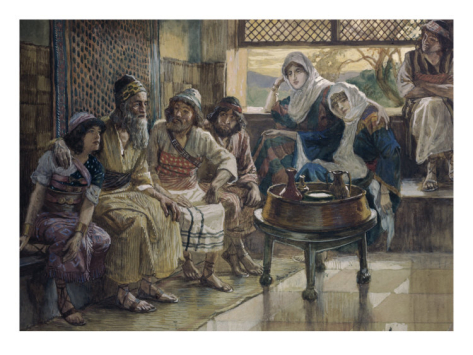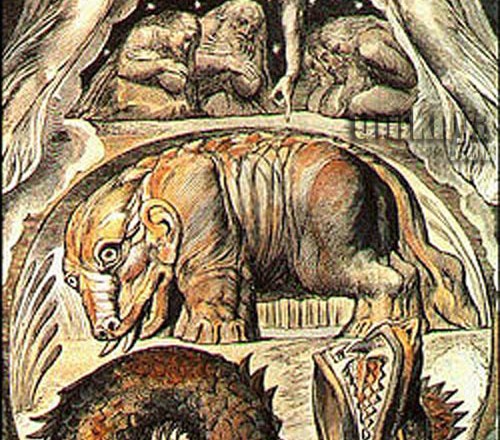Ira Michaelson – Treasures from the Tanakh – Job 5:1-27

What is the definition of the Hebrew word translated as “my cause” in Job 5:8 and is the Septuagint consistent with the translation of the same word found in Psalm 110:4? Also, what is the understanding of the word Shaddai and does evil come from God?
Truth2U Radio is hosted, edited, and produced by Jono Vandor and all programs are made freely available to download. If these programs have been a blessing to you please consider showing your support by contributing a donation or partnering with Truth2U on a weekly or monthly basis. Thank you for listening!

Audio clip: Adobe Flash Player (version 9 or above) is required to play this audio clip. Download the latest version here. You also need to have JavaScript enabled in your browser.






I loved the comments by a listener on the grief of Job’s wife. We focus so much on Job but of course, his wife was grieving the loss of her beloved children. How devastating and hard to deal with. Everything you loved and centered your life around was gone, except your husband. I think I would probably say something too. Speak first, be sorry later. Good observance.
I don’t remember the reference of where I heard/read this concept. Job counceled Pharoh about killing the firstborn in Egypt. Was this Job’s recompence? I am wrestling with the fact that Job was a “righteous servant” and then the harsh dicourse of Elifaz leaves me with more questions.
Very good discussion! For some reason, it just doesn’t make sense that Yehovah, who expresses Himself as a Father figure to Israel throughout scripture would allow both evil and good to come upon his children. In our human nature as parents, we try to prevent and protect our children from tragedy and evil. We don’t say “wow, you are such a great kid, I’m going to give you painful leprosy to test your faithfulness. If our child needs training or discipline then, we must address that of course.
I know He is God and He can do whatever He wants but I suppose He just doesn’t seem very fatherly, inflicting His children for no apparent reason.
Why are there so many verses in Scripture that clearly express that He “protects the righteous” Just chewing on all these thoughts.
I think it is good to consider what “evil” really means as Jono put it. I’ve learned that evil in scripture is more like the word “dysfunctional” but I’m not sure if that is true….just chewing on that too.
In all the years that I have thought about Job it has never entered my heart that Job’s wife buried all of her sons and daughters, ten children in all. What a terrifying idea that is. Whanda’s insight has changed how I view Job’s wife. Thank you Whanda.
Good Afternoon! why is Ira mentioning(in past broadcast Job 1-4) Rosh HaShana! interchangeably with Yom Teruah??? Yom Teruah is the name of that appointed time (or date with Yehovah) Rosh HaShana on Yom Teruah is a Talmudic teaching and it is WRONG!!! There is nothing about Judgement day on Yom Teruah or Rosh HaShana as Ira mentioned, am I missing something? Help/clarification on this Please, if you (anyone) would. 🙂
Recon,
When discussing the book of Iyov (Job) we need to keep in mind that there are many perspectives. I will often mention Rabbinic concepts, and quote from Rabbinic texts. I do not believe in throwing the baby out with the bath water. We are not supporting a Rabbinic translation, but want the listeners to understand the different interpretations that are out there.
Within Jewish tradition, Rosh HaShana is most definitely called Yom HaDin = Day of Judgment.
I hope this brings some clarification.
In the English, it reads as if Job may have been “blameless” in action, but certainly God was testing his heart. It seems that Job’s fault is in the fact that he trusted more in his righteous works than in God or that he may have been more superstitious than wanting to please God. When the bad things happen, instead of humbly asking God what he did wrong, he shouts out his innocence, as if he knows better than God. It seems like Job thinks,”I have this business arrangement with God. I do what satisfies Him, and for it, God blesses and protects me, I don’t actually have to walk with Him”. God interrupts Job’s system to prove that it’s not a formula, but a relationship. Sure, Job’s friends were not helping, but some things they said were true, (the younger, 4th friend was spot-on), yet Job was stubborn and stuck to his innocent plea over listening and humbling himself. His sin is pride. But in the end, more blessings come because Job finally repents and understands that he can’t rely on works for salvation, he must rely on God alone. Is this the wrong understanding based on the Hebrew?
I wanted to add a few comments that came to my mind when going over this section. When speaking of the harvest the hungry eat up and take from the thorns..this is what I feel like I have been doing lately! I feel sooo hungry for the word and the truth and I’m having to seperate it from the thorns and thistles of falsehood and it’s so hard to divide it sometimes and this reminded me of that. Also, the 6 times being tried and in 7 no evil shall touch you (in verse 19) allude to the 6000 years of living on earth (and being tried) and the last 1000 being at peace/rest on that millenium sabbath? That’s what came to my mind when I read it anyway.
Je’
Job did walk with God in a very personal relationship as a son would with his father. His intimate descriptions of the Creator of the universe can only come from understanding and knowing the Almighty and that it is He who exercises lovingkindness, judgment and righteousness on the earth.
It seems that the term “good works” has taken on a negative aspect from the “Christianese” doctrine.
This doctrine kicks in whenever a person is mentioned as having “good works”, automatically that person is labeled as relying on “good works” for “salvation”. Do not crucify again the one you said:
“Let your light so shine before men, that they may see your good works, and glorify your Father which is in heaven.”
“Many good works I have shown you from My Father. For which of those works do you stone Me?”